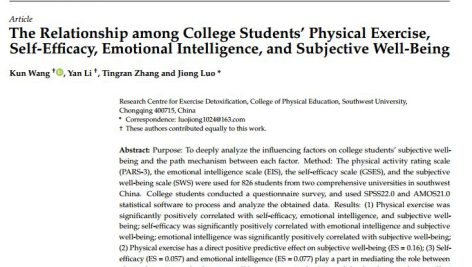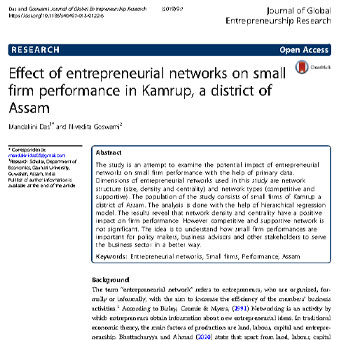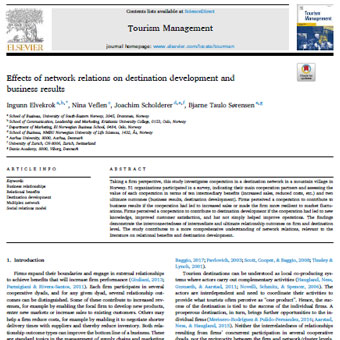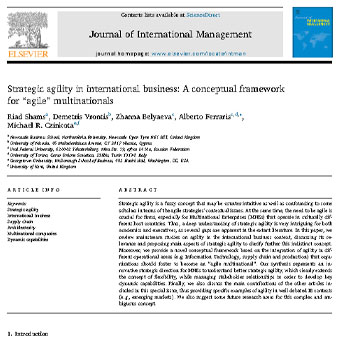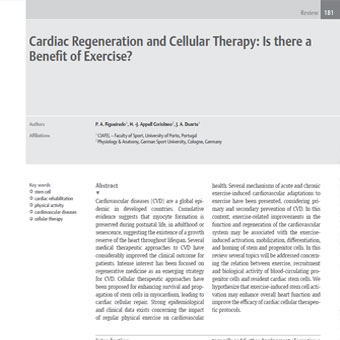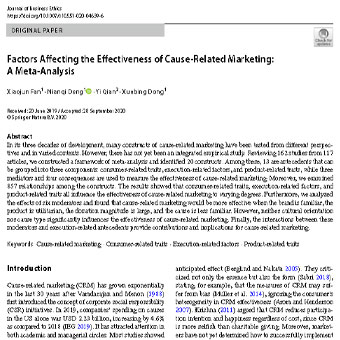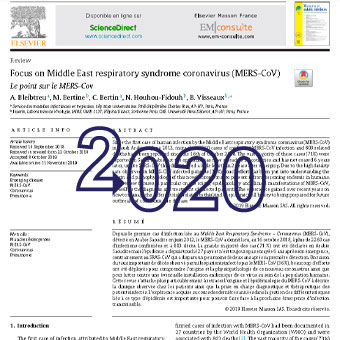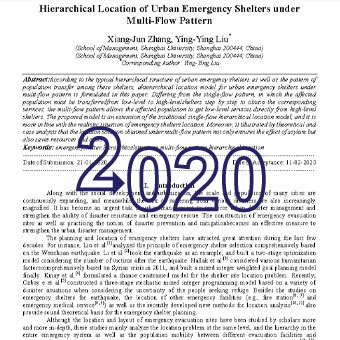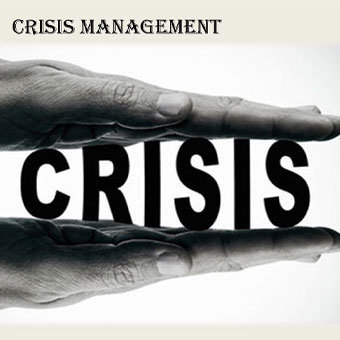عنوان فارسی مقاله:رابطه بین ورزش، خودکارآمدی، هوش هیجانی و بهزیستی ذهنی دانشجویان
چکیده
هدف: تجزیه و تحلیل عمیق عوامل مؤثر بر بهزیستی ذهنی دانشجویان و مکانیسم مسیر بین هر عامل. روش: مقیاس رتبهبندی فعالیت بدنی (PARS-3) مقیاس هوش هیجانی (EIS)، مقیاس خودکارآمدی (GSES) و مقیاس بهزیستی ذهنی (SWS) برای ۸۲۶ دانشجو از دو دانشگاه جامع در سال ۱۳۹۰ استفاده شد. دانشجویان کالج با انجام یک بررسی پرسشنامه، از نرم افزارهای آماری SPSS22.0 و AMOS21.0 برای پردازش و تجزیه و تحلیل دادههای به دست آمده استفاده کردند. یافتهها: (۱) ورزش با خودکارآمدی، هوش هیجانی و بهزیستی ذهنی رابطه مثبت معنیداری داشت. خودکارآمدی با هوش هیجانی و بهزیستی ذهنی همبستگی مثبت و معناداری داشت. هوش هیجانی با بهزیستی ذهنی همبستگی مثبت معناداری داشت. (۲) ورزش یک اثر پیش بینی کننده مثبت مستقیم بر بهزیستی ذهنی دارد (ES = 0.16)(3) خودکارآمدی (ES = 0.057) و هوش هیجانی (ES = 0.077) به ترتیب نقش میانجی بین ورزش و بهزیستی ذهنی دارند. در این میان، اثر میانجی زنجیرهای (۰۲۶/۰ = ES) خودکارآمدی و هوش هیجانی نیز به سطح معنی داری رسید نتیجه گیری: شرکت فعال در تمرینات بدنی نه تنها میتواند به طور مستقیم سطح بهزیستی ذهنی دانشجویان را بهبود بخشد، بلکه به طور غیرمستقیم از طریق بهبود خودکارآمدی، بهزیستی ذهنی آنها و همچنین مدیریت هیجانی و تواناییهای هیجانی آنها را تحت تأثیر قرار میدهد وموجب بهبود احساس رضایت از زندگی دانشجویان، مانند مدرک تحصیلی، عواطف مثبت و هیجانات منفی میشود.
- لینک دانلود فایل بلافاصله بعد از پرداخت وجه به نمایش در خواهد آمد.
- همچنین لینک دانلود به ایمیل شما ارسال خواهد شد به همین دلیل ایمیل خود را به دقت وارد نمایید.
- ممکن است ایمیل ارسالی به پوشه اسپم یا Bulk ایمیل شما ارسال شده باشد.
- در صورتی که به هر دلیلی موفق به دانلود فایل مورد نظر نشدید با ما تماس بگیرید.
 متن به فارسی | ترجمه مقالات و متون علمی | ترجمه و دانلود مقالات و انواع متون علمی و ادبی و پذیرش سفارش ترجمه
متن به فارسی | ترجمه مقالات و متون علمی | ترجمه و دانلود مقالات و انواع متون علمی و ادبی و پذیرش سفارش ترجمه
